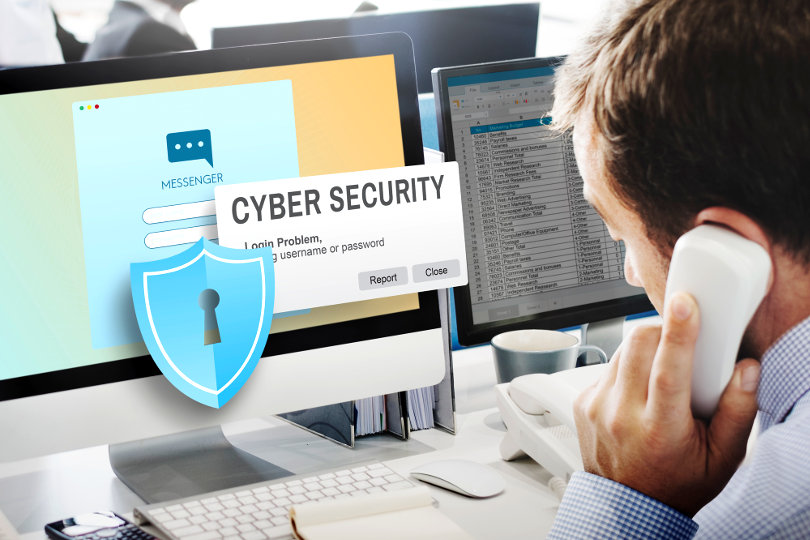In today’s business world, there’s no way to avoid having an online presence. You should have a company website regardless of what it is you sell. You also might have a proprietary platform that your employees can use for things like communication and logging hours if they work from remote locations.
With this in mind, you should have some cybersecurity measures in place. Without them, hackers can access your network. They can steal your trade secrets and crash your computer system, costing you time and money while you make repairs.

There are several cybersecurity steps that you can take that can prevent this from happening.
NIST Risk Assessments
The place to start if your goal is total cybersecurity is a NIST risk assessment. NIST is the National Institute of Standards and Technology.
These risk assessments:
- Allow you to take a close, top-down look at your cyber safety methodologies
- Highlight any access points that you need to shore up
There are companies you can hire to conduct a NIST risk assessment for you. They act like hackers and try to penetrate your network’s defenses.
They will then give you a detailed system rundown, highlighting any vulnerabilities. They can fix those for you or recommend how you can fix them. It’s a smart idea to have one of these assessments every few months.
Maybe, you can find a penetration testing service provider who can evaluate the security of the systems by safely trying to exploit vulnerabilities.
Invest in a Business VPN
A VPN is a virtual private network. There are ones you can get for business platforms. These are apps that:
- Give you end-to-end encryption
- Allow even your remote workers to access your network in total privacy and security
With lots of people working from home these days, getting a VPN is more vital than ever before. With one in place, your remote workers can send documents as attachments to those both within your network and outside of it.
Anyone who intercepts these communications will not get any useful information from them, since they’re fully encoded. With a business VPN in place, both your workers and any companies with whom you’re partnering can converse in total security.
WPA2
You can also use what those in the cybersecurity industry call WPA2. It is an encrypted password protocol. Your workers use it when they’re logging onto your network.
WPA means Wi-Fi protected access. Once you enable one of these protocols on your network browser, it’s like a suit of armor for the passwords they use. Much like with messages sent via a business VPN, even the most skilled hackers cannot crack these codes.

No File Sharing
Another thing you can do is to disable file sharing, except on file servers.
Let’s say that you enable file sharing for any device that connects to your network. If you do this, anyone can see the files that pass through the network if they are using that Wi-Fi connection.
Use a WAF
You might also consider using a web application firewall, or WAF. This is a way to protect sensitive customer data, like names, addresses, credit card numbers, bank routing numbers, etc.
The firewall is an extra defense against hackers. If you have an eCommerce-oriented business, you’ll want to invest in a high-quality firewall.
SSL Certificates
You should also use SSL certificates. SSL means a secure sockets layer. You’ll want to have these in place for more secure customer interactions via your network.
SSL certificates ensure that there is always a fully encrypted link between the web server and any browsers. Along with a firewall and a WPA2 protocol, you’re setting up a framework that should baffle most hackers. You’ll discourage them, and they’ll look for easier targets.

Change Your Company Network Name
One final thing that you can do if cybersecurity is your goal is to change the company network name that your provider gave you. You don’t want to default to that name.
The problem is that the moniker they give you almost always contains your router model. You don’t want anyone to have that information. An internet user who sees that is one step closer to figuring out how to get the necessary documentation for network access.
If you come up with a new name, that’s another savvy way to deter hackers.
You always need to implement not one, but many security levels if you want to remain ahead of the game. Hackers will try to find new ways past your safeguards, but the more deterrents you have in place, the less likely they can beat your safety protocols.







